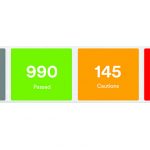The food industry’s fast pace coupled with fluctuating consumer demands require food companies to be adaptable and responsive to changes. Food processing modularization supports these aims by allowing facilities to buy specialty equipment that is easy to install and supports a company’s growth. This includes modular automation systems that allow food processors explore new and feasible ways to streamline critical processes.
Modularization in food processing involves separating your hardware and processing lines into modular systems that can be adapted to expand operations or meet shifting demands. When the COVID-19 pandemic caused a goat meat processor to reevaluate its business model, the founder contacted a modular building supplier to learn about solutions. He decided to install a modular butchery unit that allowed the company to serve online customers, whereas it previously worked primarily with physical restaurants. The building company took less than six months to create a fully functional unit. The prefabricated pieces increased flexibility without the need for on-site construction or expansion to a larger facility.
The chosen solution allows the business to add up to three more modules, if needed, as it grows. The company has hired two additional butchers since launching the modular unit and can double that capacity when needed.
Meet Rising Demands with Modular Automation Systems
Decision-makers from a Dutch company invested in a modular extrusion machine that offers quick changeovers and individualized customization for products ranging from cookie pieces to protein chips. The extruder offers a screw speed topping 1,800 rotations per minute, providing an estimated 8,000-ton boost to the company’s annual capacity. This investment allowed the company to produce both new and existing products to the same high standards offered through its previous equipment. And the new extruder also has a hygienic design that minimizes downtime for cleaning.
Modular automation systems can support company goals to earn food certifications and cater to new market segments. For instance, businesses with equipment that allows quick changeovers and thorough, efficient cleaning can more easily meet the requirements of customers with specific dietary preferences.
Alter Production Capabilities to Meet Market Needs
Consumer tastes change, and companies that frequently offer new products, flavors or formats have a competitive edge. Food processing modularization supports this flexibility and innovation by making it easier for manufacturers to adapt. Modular automation systems let companies quickly and strategically reprioritize operations according to marketplace trends or business goals. A modular type package (MTP) can save up to 40% on production costs by increasing flexibility. For example, MTPs allow companies to reserve specific days of the week for production of particular items, enabling shorter production runs and greater product diversity.
Decision-makers at candy brand Hershey’s installed modular systems that use robotics and automation and allow for smaller production runs and shorter changeover times. These efforts were part of a larger overhaul to enhance the company’s supply chain and tackle seasonal slowdowns.
Plan for Profitable Futures
Success in the food processing industry requires companies to stay one step ahead of competitors by choosing the best times to scale up or shift to meet future needs. Baking industry professionals explain that speed is only one element of future-proofing a processing line. People must also explore how to make more items out of the same dough.
Some companies sell modular equipment and tools that enable employees working at baking facilities to make rounded items out of square sheets, for example. Besides reducing waste by increasing the amount of usable material, such equipment can help companies introduce new products faster by creating more products on the same lines. These advances enable bakery leaders and other food processing decision-makers to adopt future-oriented mindsets rather than only addressing immediate needs, which boosts the bottom line and helps companies stay competitive and current.
Enjoy the Benefits of Food Processing Modularization
Budgeting for food processing modularization systems is an excellent way to focus on growth, worker productivity and scalability at an industrial facility while maintaining efficient changeover times and sanitation requirements.
Companies interested in purchasing these solutions should consider which challenges they want to solve and how the upgrades fit into overarching business goals. Such considerations will give you the best opportunity to achieve desired gains. One of the biggest advantages of modular products is their flexibility, which helps companies meet their needs in shorter time frames and without moving to new facilities.








